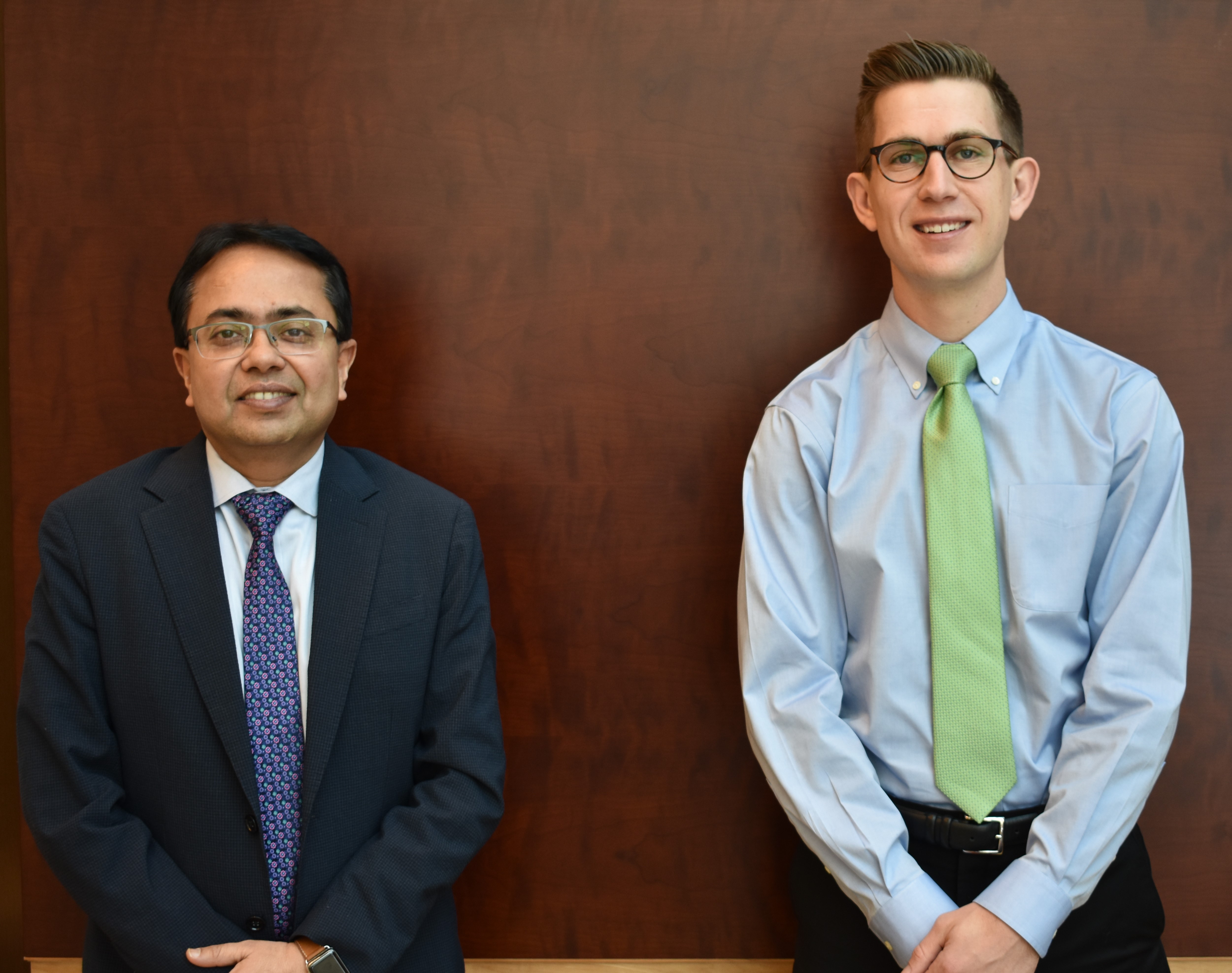Mentorship in Action: Internal Medicine Resident Finds Success Through Faculty Mentorship
In only three years as a resident in the Department of Internal Medicine, Dr. Andrew Hahn has found great success in his academic and professional career. As one of five Chief Medicine Residents, he inspires his fellow trainees with his clinical expertise, teaching skills and leadership qualities. His enthusiasm for research is evident, with co-authorships on 43 manuscripts in prestigious oncology journals, including 22 as first author. His awards are numerous, and include a Conquer Cancer Foundation ASCO Merit Award and most recently, the Susan Cooper Jones Endowed Fellowship in Cancer Research.
As an applicant for the Susan Cooper Jones Endowed Fellowship in Cancer Research, Hahn came to his faculty mentor, Dr. Neeraj Agarwal for a letter of recommendation. Agarwal, a professor of oncology and investigator for HCI, was happy to support a mentee worthy of the honor. “Without any hesitations,” he wrote, “Andrew is the most outstanding mentee and in-training physician I have worked with during my entire career. He has my highest recommendations.”
Drs. Agarwal and Hahn’s mentor-trainee relationship began in January 2016 after Agarwal’s colleagues recognized Hahn’s passion for research and sought to introduce him as a mentorship candidate. After a self-described “informal interview,” Agarwal was thrilled to take on a resident with such zeal for research and patient care.
Since that time, they have worked closely on many research projects, outpatient clinic, and the inpatient oncology service. Agarwal assures that a mentor-trainee relationship is more than just teaching clinical tidbits and writing letters of recommendation. “The key to mentorship is to learn from each other,” he says. “I learn from trainees just as much as they learn from me. Andrew, in particular, shares with me many academic papers and research projects I did not know about before. This kind of relationship really is a two-way street.”
Hahn agrees mentor-trainee relationships offer moments of learning for both participants, but he also highlights another important aspect of mentorship – networking. “Research is collaborative by nature, and often involves combined efforts of outside institutions, researchers, and even different countries,” Hahn says. “Dr. Agarwal has shown me the importance of networking on both the institutional and national level and how it impacts research efforts. Without his help and introductions, I would not have the opportunities I have today.”
While grateful for the opportunities, Hahn acknowledges that they did not come without effort on his part. “Because mentoring is a two-way relationship, trainees cannot hope to find a mentor without being proactive,” he says. “I encourage all trainees to be proactive and seek out mentors on their own.”
Drs. Agarwal and Hahn embody a mentor-trainee relationship built on respect, a desire to learn and a mutual passion for research. Agarwal hopes to inspire fellow physicians to take on a more active role in teaching trainees. “One of the biggest responsibilities in medicine is to teach and build high-quality doctors and researchers,” he urges. “Don’t look at what a mentor-trainee relationship gets you in your CV; leave the CV aside and help build the next generation.”
 Dr. Neeraj Agarwal (left) with his mentee, Dr. Andrew Hahn (right)
Dr. Neeraj Agarwal (left) with his mentee, Dr. Andrew Hahn (right)